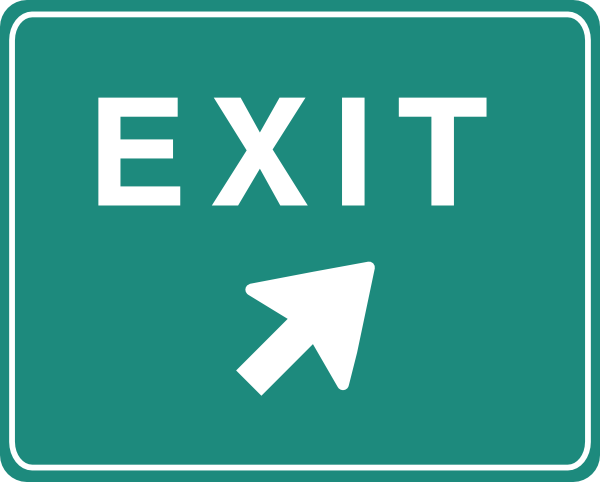
After Kim’s interview of myself and my business exit story, it was time to switch roles and it was my turn to become the interviewer in order to be able to share Kim’s story with you. Kim’s exit from her business was different to what would be perceived as the norm and shows that business owners, even with business partners, can change their circumstances from within and successfully exit their own business. Read on to discover the difference!
Joanna: What was your original business exit plan?
Kim: Originally I didn’t know I had the ability to exit my company. For some reason I felt as if I had to keep it until I died. I know that probably sounds silly, but I felt trapped in my business and thought people would think I was ungrateful for wanting to sell it or leave it. To further complicate things, my business partner and joint shareholder was happy to plod on for an indefinite period of time. I felt stuck. I loved my company and was very proud of what I created however I was board stiff. I wanted to do something else!
Joanna: So what triggered your desire for a business exit?
Kim: While attending the Business Growth Programme at Cranfield University I not only realised that my company was very valuable but I also learned that there were several ways for me to exit. During a dinner with my counselor he asked me what I really wanted to do with the business and my response was to ‘get rid of it or find a way to get out of it.’ It was the first time I aired my feelings but I felt as if I had nothing to lose. My counselor didn’t have a vested interested in the business so I felt free to talk openly. His response was, ‘what’s stopping you’? For the first time in years I felt as if there was a light at the end of my tunnel. Right after that conversation I was referred to a lawyer and he outlined various options.
Joanna: And how did you find the process emotionally?
Kim: The process was the hardest thing I’ve ever done in my whole life. Even though I wanted to desperately get out of my business exiting was heart-wrenching. I cried. I screamed. I felt sane one day and insane the next. After eight years of growing a company from nothing to something I found it massively emotional. The negotiations had me up pacing through the night. My thoughts were all over the place. I wondered if I’d get the amount of money I felt I deserved. It seemed as if time stood still and things weren’t progressing fast enough. I felt anxious, nervous and afraid to even contemplate that I’d be able to get a large sum of cash and walk away. On top of all the negotiations there was also dealing with the tax authorities, lawyers and keeping things quiet from the employees. Just typing this now reminds me of how atrocious the process was for me. Furthermore, I felt as if I was going through a divorce with my business partner. We spend 8 years building something amazing and I was telling him I wanted to go my separate way.
Joanna: So what was the final outcome?
Kim: My business partner didn’t want to sell so after three ‘Considerations,’ I agreed to sell my partner 40% of my shares and grant an option for him to buy the remaining 60% of shares within a certain amount of time. The 40% payout was scheduled to come to me over 2 years with the remaining option to follow if my business partner wishes to exercise it. I was able to quit as an employee and resign from the Board of Directors. Luckily, I was able to walk away quite quickly and within three months the deal was signed and the money started to come my way. I felt that the deal struck was fair and I’m pleased to say that the relationship between me and my ex-business partner is on good terms. I’m ecstatic about the outcome and don’t have any regrets. It was the hardest thing I’ve ever done, but it was well worth it.
Joanna: In hindsight, what are the top 5 things would you have done differently, if anything?
Kim: I don’t think that I could have done anything differently other than learned how to relax more. I felt so anxious and worried when I really didn’t have to. But I suppose that applies to anything in life!
So there you are, here’s actual proof that no matter how stuck you feel as a business owner, there is a way out and you too can exit your own business. It may take someone from the outside to help you realise it but see, it is possible. If you are in a similar situation to what Kim’s was but have yet to verbalise it or do anything about it, perhaps after reading this it will spur you on and you too can exit your business and find the joy in life again.
Joanna Miller helps business owners navigate their way through the start to finish process of selling a business. Her specialty is helping owners understand how to prepare and make the most of their business sale process to maximise their company’s value. To understand how you can sell your business quickly for the highest sales price, purchase her book, “How To Sell A Business: The #1 guide to maximising your company value and achieving a quick business sale”










